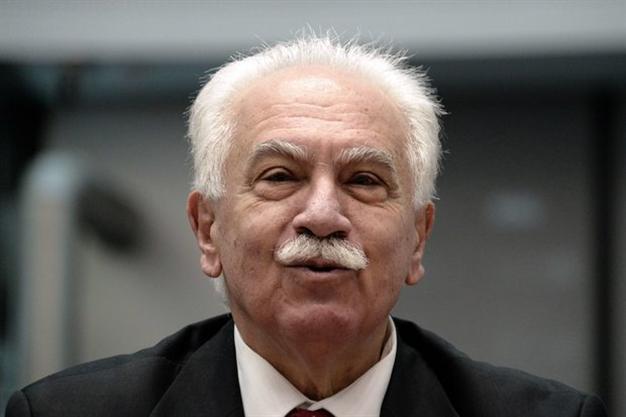Euro court rules in favor of Turkish politician in ‘Armenian genocide denial’ case
STRASBOURG

AFP photo
The European Court of Human Rights (ECHR) in Strasbourg ruled on Oct. 15 that Switzerland violated Turkish politician Doğu Perinçek’s right to freedom of speech.The case concerned a fine imposed on Perinçek for a speech he gave in the country in which he denied that the mass deportation of Armenians in Anatolia in 1915 amounted to genocide.
In its ruling, the 17-judge ECHR Grand Chamber “concluded that it had not been necessary, in a democratic society, to subject Mr. Perinçek to a criminal penalty in order to protect the rights of the Armenian community at stake in the case.”
The court said Perinçek’s statements “bore on a matter of public interest and did not amount to a call for hatred or intolerance.”
Perinçek described the ECHR’s decision as “historic.”
“This is a historic ruling. This decision is not only about a simple law dispute, it is about the defense of Turkey’s homeland,” Perinçek said after the court announced its decision.
Perinçek, the leader of Turkey’s Vatan Party (VP), said at a celebration of the 82nd anniversary of the 1923 Treaty of Lausanne that it was an “international lie” to classify the mass deaths of Armenians near the end of the World War I as genocide.
Because the event took place in Lausanne, Perinçek was allegedly in violation of Swiss anti-racism legislation.
Upon an official complaint by the Switzerland-Armenia Association, Perinçek was tried and found guilty of racial discrimination in March 2007, and sentenced him to fines and prison time.
Following the punishment, Perinçek lodged a complaint with the ECHR in 2008.
In a judgment of Dec. 17, 2013, the ECHR ruled that there had been a violation of Article 10 (freedom of expression) of the European Convention on Human Rights. The Swiss government requested that the case be referred to the Grand Chamber.
















